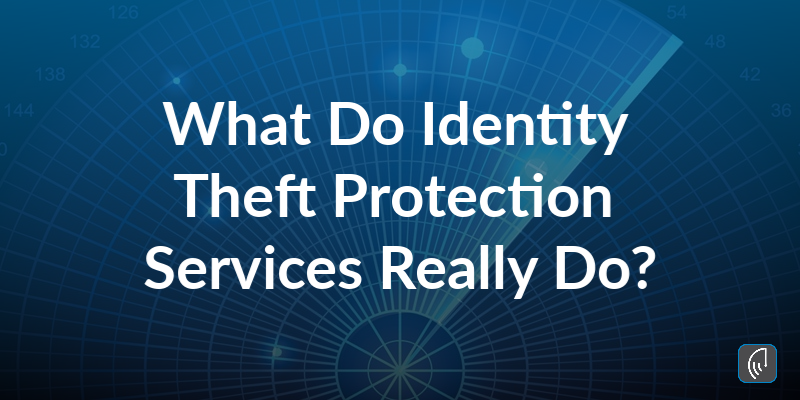We all hear about the big breaches in the marketplace but what does that mean to us, what can an identity theft protection services actually do to protect us?
If these questions have ever run through your mind, you are not alone! But, we should understand these services and what they offer.
 First! No, Identity theft protection services DO NOT prevent identity theft. The prevention of identity theft is a far fetched idea at this point. You would have to gain/regain control over all of your personal information from every area of your life and secure that information. This, unfortunately, is unrealistic as most of our information is out there already. We provide our Personal Identifiable Information (PII) for almost everything/transaction we do. Our own behavior and the companies we associate with every day are susceptible to breach or mishandling information, putting us all at risk. This alone creates exposure to everyone far more than ever, leaving us as companies and individuals to take any and all precautions to reduce our risk.
First! No, Identity theft protection services DO NOT prevent identity theft. The prevention of identity theft is a far fetched idea at this point. You would have to gain/regain control over all of your personal information from every area of your life and secure that information. This, unfortunately, is unrealistic as most of our information is out there already. We provide our Personal Identifiable Information (PII) for almost everything/transaction we do. Our own behavior and the companies we associate with every day are susceptible to breach or mishandling information, putting us all at risk. This alone creates exposure to everyone far more than ever, leaving us as companies and individuals to take any and all precautions to reduce our risk.
What Identity Theft Protection Services Really do:
Identity theft protection services provide a central location for you to monitor several key warning signs of identity theft, provide alerts of a threat and most importantly, a path to recovery from your identity being stolen.
There are three main services that a provider offers:
- Monitoring of your personal information
- Alerts you when that information is used resources for recovery
- Recovery
Some providers also offer features less focused on identity theft protection, such as alerts about breaches, language monitoring on social networks, and local sex offender registries.
A Closer Look at the Three Main Services:
-
Monitoring:
Providers will monitor your PII for any activity, such as:
- Credit Inquiries
- New accounts opened in your name
- USPS Change of address request
- PII bought and sold on the dark web
(Click here for a list of Features Used to Monitor your identity by providers)
-
Alerts:
You are notified of a compromise via, Phone, Email, and Text. Alerts are important because this will mitigate the risk of long term identity theft and will help to minimize all the negative effects of stolen information. People rarely know their identity is stolen until the damage has been done, banks accounts drained, credit ruined, and a ton of new debt in their name.
-
Recovery:
Just knowing that someone may have hacked your information to use fraudulently doesn’t help you much. When you get that alert, you want to be able to turn to someone and take action. Providers give you that place to turn when you have a concern. This is by far the most important of the 3 services.
When an alert comes in, you have a dedicated team to assist you with your questions. A recovery expert will guide you through the recovery process or take control of that process on your behalf when you become a victim. Preferably, the recovery expert takes control of that process through a limited power of attorney, working on your behalf so you can have peace of mind that a true expert is taking care of things for you.
Identity Theft Protection Monitoring is not for everyone. Having a place to turn when you are a victim is. Although these features mitigate risk, they do not have to be turned on when you enroll. The extent to which you want to add information is up to you and only you. Our advice is to find a provider you are comfortable with, sign up, only add the information you want to be monitored. At this point, you have set yourself up for a successful, expedient recovery that you are comfortable with.
